Yves A. DeClerckProfessor of Pediatrics and Biochemistry & Molecular Medicine, Children’s Hospital Los Angeles, University of Southern California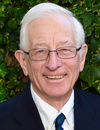 Yves DeClerck, MD, is a Pediatrician-Scientist at Children’s Hospital Los Angeles and USC, and the holder of the Richard Call Family Chair in Pediatric Research Innovation. He is leading a cancer biology research program focused on the Tumor Microenvironment (TME) and its contribution to cancer progression and metastasis. The main objective of the laboratory is to understand fundamental mechanisms of communication between tumor cells and stromal cells in the TME in order to identify targets for therapeutic intervention that can be tested in relevant pre-clinical models. The research program has 3 major directions: (1) Contribution of MSC and cancer-associated fibroblasts (CAF) to neuroblastoma progression; (2) Contribution of exosomes and extracellular vesicles to the education of CAF/MSC and macrophages by tumor cells; and (3) Role of plasminogen activator inhibitor-1 (PAI-1) in cancer progression. |
Utkan DemirciProfessor, Stanford University School of Medicine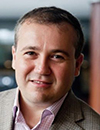 Utkan Demirci, PhD, is a professor with tenure at Stanford University School of Medicine at the Canary Center at Stanford for Cancer Early Detection. Before moving to Stanford, he was an associate professor of Medicine and Health Sciences and Technology at Brigham and Women’s Hospital, Harvard Medical School (HMS) and Harvard- Massachusetts Institute of Technology (MIT) Health Sciences and Technology. His group is focused on the development of point-of-care technologies and creating microfluidic platforms for sorting rare cells and exosomes for infectious diseases and cancer. His early work founded the basics of 3-D bioprinting of cells and biomaterials. |
Michael HellerProfessor, Dept Bioengineering, University of California-San Diego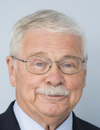 Michael J. Heller received his PhD in Biochemistry from Colorado State University in 1973. He was an NIH Postdoctoral Fellow at Northwestern University from 1973 to 1976. From 1976 to 1984 he was supervisor of the DNA Technology Group at Amoco Corporation (Standard Oil Indiana) During that time he carried out early bioengineering and recombinant DNA work on plants, algae and photosynthetic bacteria for energy and chemical production, and developed some of the first fluorescent resonant energy transfer (FRET) and chemiluminescent oligonucleotide probes for DNA hybridization analysis. He also oversaw Amoco’s sponsored energy and chemical research work at Cetus Corporation, which included the cloning of thermophilic enzymes. Dr. Heller was the Director of Molecular Biology at Molecular Biosystems, Inc., from 1984 to 1987. He was a co-founder of Integrated DNA Technologies, and served as President and Chief Operating Officer from 1987 to 1989. He was a co-found of Nanogen and served as the Chief Technical Officer from 1993 to 2001. Nanogen carried out the successful development and commercialization of electronic DNA microarray technology for clinical diagnostic genotyping applications. Dr. Heller is a Professor (Recall/Emeritus) in the Departments of Nanoengineering and Bioengineering at the University California San Diego. He is also now a Distinguished Scientist at the Oregon Health & Science University (OHSU), Center for Cancer Early Detection and Research (CEDAR), in Portland, Oregon. He has also co-founded a company called Biological Dynamics which is developing new sample to answer cancer diagnostics technology, based on the novel dielectrophoretic (DEP) technology developed at his UCSD lab. Dr. Heller has extensive industrial experience in biotechnology, biomedical and molecular diagnostic devices and nanotechnology, with particular expertise in the areas of DNA probe diagnostics, electrokinetic lab-on-a-chip devices, DNA synthesis, FRET/fluorescent-based detection technologies and electric field assisted self-assembly of DNA nanostructures. Dr. Heller has over 100 publications and 56 issued US patents. |
Jennifer JonesNIH Stadtman Investigator, Head of Transnational Nanobiology, Laboratory of Pathology, Center for Cancer Research, National Cancer Institute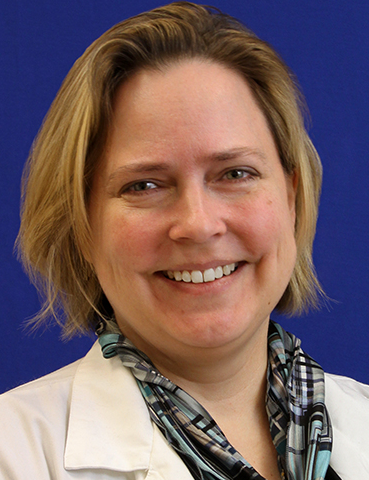 Dr. Jones is NIH Stadtman Investigator, Head of Transnational Nanobiology, Laboratory of Pathology at the Center for Cancer Research, National Cancer Institute, who is developing, refining, and applying advanced high-resolution flow cytometric methods to the characterization of EV subsets. She initiated/cofounded the international ISEV-ISAC-ISTH EV Flow Cytometry Working Group, to support the development of consensus best practices and standardization methods for the field. The ultimate goal of her research is to develop a new class of EV-based biomarkers (and methods for anlyzing those EVs) that will enable adaptve therapeutic strategies, where individual patient treatments are customized based on early responses to treatment. |
Erkki RuoslahtiDistinguished Professor and Former President, Sanford Burnham Prebys Medical Discovery Institute Dr. Erkki Ruoslahti is Distinguished Professor and former president of Sanford-Burnham Institute for Medical Research and a founder of the Center for Nanomedicine at University of California, Santa Barbara. Dr. Ruoslahti is a pioneer in the field of cell adhesion. His main discovery and invention is the integrin-binding tripeptide motif RGD and integrins that recognize this motif. He now studies specific vascular addresses in directing drugs to sites of disease. Dr. Ruoslahti’s is a member of the U.S. National Academy of Sciences and National Academy of Medicine. He is the recipient of a number of awards, including the Japan Prize and Gairdner Award, and Knight and Commander of the Orders of White Rose of Finland and Lion of Finland. |
Lydia SohnAlmy C. Maynard and Agnes Offield Maynard Chair in Mechanical Engineering, University of California-Berkeley Lydia L. Sohn received her A.B. (Chemistry and Physics, 1988), M.S. (Physics, 1990), and Ph.D. (Physics, 1992) from Harvard University. She was an NSF/NATO postdoc at Delft University of Technology and a postdoc at AT&T Bell Laboratories (1993-1995). Sohn was an Assistant Professor of Physics at Princeton University prior to joining the Mechanical Engineering Dept. at UC Berkeley in 20013. Her work focuses on developing quantitative techniques to probe single cells. Sohn has received numerous awards including the NSF CAREER, Army of Research Young Investigator Award, DuPont Young Professor Award, and a Bakar Fellowship. In 2014, she was one of five winners in the “Identifying Platform Technologies for Advancing Life Sciences Research” competition for her work on Node-Pore Sensing. Most recently, she was elected a Fellow of the American Institute for Medical and Biological Engineering. |
Steve SoperFoundation Distinguished Professor, Director, Center of BioModular Multi-Scale System for Precision Medicine, The University of Kansas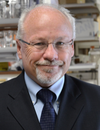 Prof. Soper is currently a Foundation Distinguished Professor in Chemistry and Mechanical Engineering at the University of Kansas, Lawrence. Prof. Soper also holds an appointment at Ulsan National Institute of Science and Technology in Ulsan, South Korea, where he is a World Class University Professor. He is also serving as a Science Advisor for a number of major worldwide companies. Prof. Soper is currently on the Editorial Board for Scientific Reports and Journal of Micro- and Nanosystems. |
Hsian-Rong TsengProfessor, Crump Institute for Molecular Imaging, California NanoSystems Institute, University of California-Los Angeles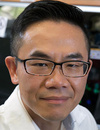 Dr. Tseng is professor in the Department of Molecular & Medical Pharmacology at UCLA. He also holds memberships of the California NanoSystems Institute, Crump Institute for Molecular Imaging and Institute for Molecular Medicine on the UCLA campus. Since he joined UCLA Pharmacology in 2003, Dr. Tseng’s group at UCLA has developed a series of nanotechnology- and microfluidics-enabled in vitro molecular diagnostic (IVMD) technologies. In collaboration with his physician colleagues, the goal of their joint team is to translate these new IVMD technologies from research bench to clinical practice. |




